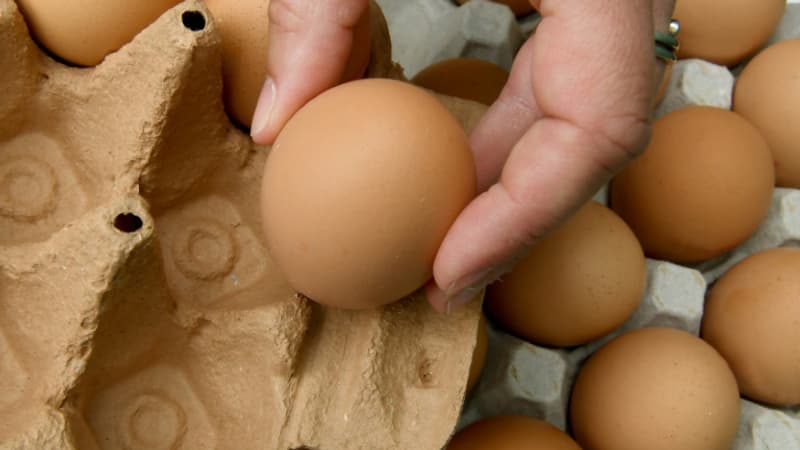After mustard and oil, eggs could become a rare commodity on supermarket shelves. Due to the return of avian flu, which is wreaking havoc on farms, the National Union of Egg Manufacturers and Professionals (SNIPO) warned at the end of October of the “critical situation” of the egg market, “with a general lack of availability “.
“The industry continues to experience an avian influenza crisis of unprecedented intensity. After a pause this summer, the situation has deteriorated again since the start of the school year, with many confirmed outbreaks on farms (…)”, testified the sector, adding that “cases have accelerated in recent days and They fear a regrowth in the coming weeks and a worsening of the decline in national and European production. As a consequence: the offer is largely insufficient, with no solution to satisfy the demand”.
These difficulties can already be seen on supermarket egg shelves, which are becoming increasingly scarce. “There have already been some cases of bird flu in western France, which accounts for 60% of the national egg production, so we lost production. And then many countries in Europe were also affected, which means there is no more eggs available. on the market”, worries Yves-Marie Beaudet, breeder in Brittany and president of the National Committee for the Promotion of Eggs (CNPO).
Last week, the authorities raised the level of risk of bird flu from “moderate” to “high” in the entire metropolitan territory. This forces farmers to confine their poultry. “We have housed our animals to protect them, so we are trying to limit the arrival of this disease as much as possible,” confirms Yves-Marie Beaudet. Since August 1, more than 770,000 poultry have been culled in France to stop the epidemic.
sky high prices
Added to the anguish of seeing their offspring affected by bird flu is the fear of not being able to meet the extremely high costs for producers. “The war in Ukraine and generalized inflation are causing an explosion of all production costs (raw materials, packaging, energy, transport, etc.) which are reaching record levels”, stresses SNIPO.
“In 2022 I paid 35,000 euros for electricity, in 2023 I will pay 100,000 euros,” Yves-Marie Beaudet also testifies. These cost pressures are prompting some breeders to reduce their production, which “causes a strong destabilization of supply chains” and leads to “significant disruptions”, according to SNIPO, which does not expect a return to normality before mid-June. 2023.
Sky-high costs are mechanically reflected on the shelves. According to INSEE, the price of eggs jumped 14.8% between October 2021 and October 2022. And “although the skyrocketing energy costs have not yet passed downstream, egg prices they are and will continue at very high levels”, warns SNIPO. .
However, the union specifies that “the egg remains the cheapest animal protein on the market” while “two thirds of the French consider eggs as an anti-crisis product”. “In this context, the sale of eggs in stores is very dynamic, increasing by 4.5% in volume in the last three months (July-August-September) compared to the same period in 2021,” concludes the SNIPO.
Source: BFM TV


